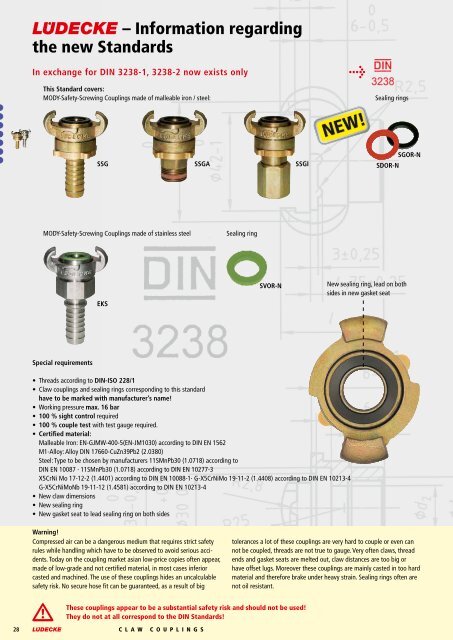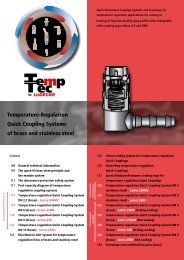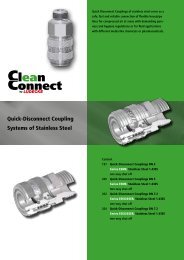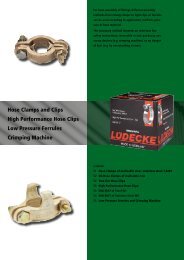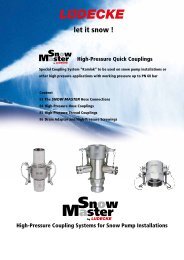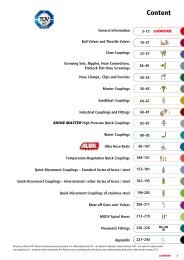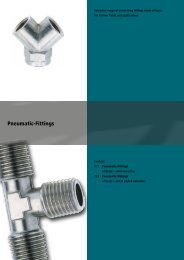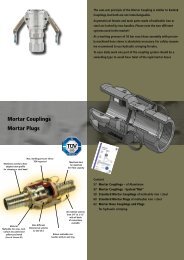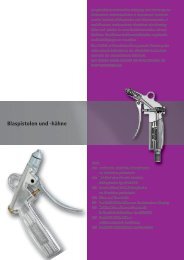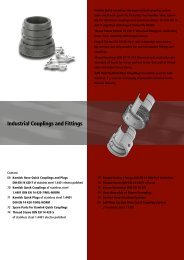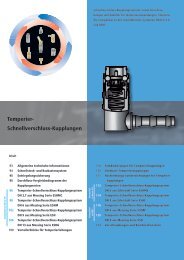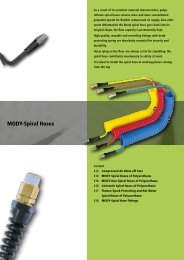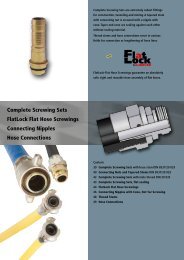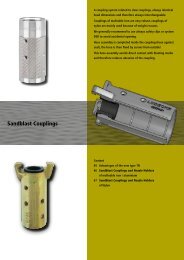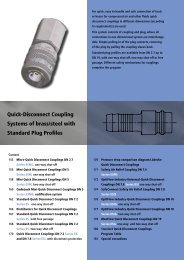You also want an ePaper? Increase the reach of your titles
YUMPU automatically turns print PDFs into web optimized ePapers that Google loves.
– Information regarding<br />
the new Standards<br />
In exchange for DIN 3238-1, 3238-2 now exists only<br />
This Standard covers:<br />
MODY-Safety-Screwing <strong>Couplings</strong> made of malleable iron / steel:<br />
Sealing rings<br />
SSG<br />
SSGA SSGI SDOR-N<br />
SGOR-N<br />
MODY-Safety-Screwing <strong>Couplings</strong> made of stainless steel<br />
Sealing ring<br />
EKS<br />
SVOR-N<br />
New sealing ring, lead on both<br />
sides in new gasket seat<br />
Special requirements<br />
• Threads according to DIN-ISO 228/1<br />
• <strong>Claw</strong> couplings and sealing rings corresponding to this standard<br />
have to be marked with manufacturer’s name!<br />
• Working pressure max. 16 bar<br />
• 100 % sight control required<br />
• 100 % couple test with test gauge required.<br />
• Certified material:<br />
Malleable Iron: EN-GJMW-400-5(EN-JM1030) according to DIN EN 1562<br />
M1-Alloy: Alloy DIN 17660-CuZn39Pb2 (2.0380)<br />
Steel: Type to be chosen by manufacturers 11SMnPb30 (1.0718) according to<br />
DIN EN 10087 · 11SMnPb30 (1.0718) according to DIN EN 10277-3<br />
X5CrNi Mo 17-12-2 (1.4401) according to DIN EN 10088-1· G-X5CrNiMo 19-11-2 (1.4408) according to DIN EN 10213-4<br />
G-X5CrNiMoNb 19-11-12 (1.4581) according to DIN EN 10213-4<br />
• New claw dimensions<br />
• New sealing ring<br />
• New gasket seat to lead sealing ring on both sides<br />
Warning!<br />
Compressed air can be a dangerous medium that requires strict safety<br />
rules while handling which have to be observed to avoid serious accidents.<br />
Today on the coupling market asian low-price copies often appear,<br />
made of low-grade and not certified material, in most cases inferior<br />
casted and machined. The use of these couplings hides an uncalculable<br />
safety risk. No secure hose fit can be guaranteed, as a result of big<br />
tolerances a lot of these couplings are very hard to couple or even can<br />
not be coupled, threads are not true to gauge. Very often claws, thread<br />
ends and gasket seats are melted out, claw distances are too big or<br />
have offset lugs. Moreover these couplings are mainly casted in too hard<br />
material and therefore brake under heavy strain. Sealing rings often are<br />
not oil resistant.<br />
These couplings appear to be a substantial safety risk and should not be used!<br />
They do not at all correspond to the DIN Standards!<br />
28<br />
CLAW COUPLINGS


